
An AI-powered handheld spectroscopy device is showing promise in improving melanoma detection accuracy among primary care physicians, addressing critical gaps in early diagnosis and timely referral.

An AI-powered handheld spectroscopy device is showing promise in improving melanoma detection accuracy among primary care physicians, addressing critical gaps in early diagnosis and timely referral.

AVAVA receives FDA clearance for wrinkle treatment, showcasing significant results and high patient satisfaction with its innovative Focal Point Technology.
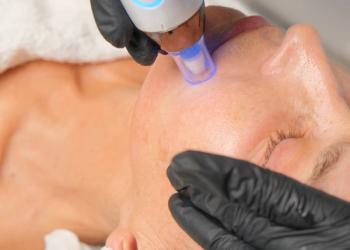
FDA warns of serious risks associated with RF microneedling, urging patient education and careful provider training to ensure safety in aesthetic dermatology.

Amy Lewis, MD, integrates Glo2Facial into her practice to enhance patient relationships and promote early skin health through innovative aesthetic treatments.

Discover how the Glo2Facial revolutionizes aesthetic dermatology with innovative skin oxygenation and customizable treatments for radiant, youthful skin.

Thermage FLX achieves 5 million treatments, showcasing its trusted non-surgical skin tightening technology for smoother, youthful skin.

Dendy Engelman, MD, FACMS, FAAD, explores the benefits of EVERESSE monopolar RF technology, emphasizing safety, comfort, and effective skin rejuvenation.

Dendy Engelman, MD, FACMS, FAAD, explores the latest advancements in laser and energy-based dermatological treatments, including skin resurfacing and body contouring.

A new comparative study evaluated positive outcomes from patient use of a gua sha versus a facial roller over 8 weeks of treatment.

Discover the revolutionary Hydrafacial HydraFillic with Pep9 Booster, enhancing skin hydration and reducing fine lines with advanced peptide technology.
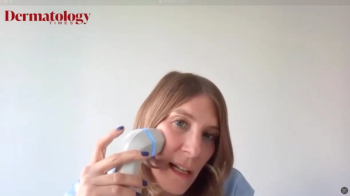
Discover how Julia Zimmermann, PD, PhD's PHLAS innovates cold plasma technology for skin care, enhancing treatments for acne and skin health.

The co-founder of PathAI and its PathAssist Derm tool believes AI is going to be incredibly valuable for dermatologists and dermatopathologists.

Although the tool is currently designed for research use only, CEO Andy Beck, MD, PhD, is excited about its future in clinical dermatopathology.

Answer today’s poll and read more about the validity of dermatological content being shared on TikTok.

Data augmentation techniques like cropping and blurring allow AI models to overcome limited datasets, improving skin cancer detection rates.

Designed to mimic natural tissue scaffolds, DermiSphere hDRT offers innovative support for cellular infiltration and healing in reconstructive surgery.

A pilot study monitored the disease management, technical challenges, and overall benefits for chronic spontaneous urticaria.

Click here to answer today’s poll and read more about the perception of telehealth treatment in dermatology.

Although further research is still needed, dermatologists and patients are generally satisfied with teledermatology treatment.

Two recently published studies evaluated the uses of and attitudes toward telehealth in dermatology after the COVID-19 pandemic.
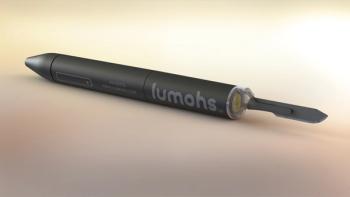
Steven Hacker, MD, explains how the electromagnetic resonant scalpel provides a digitized record of the in vivo scalpel path.

Renata Block, PA-C; Raj Chovatiya, MD, PhD; and Zoe Diana Draelos, MD, discuss their optimism and concerns surrounding the increased use of artificial intelligence in dermatology.

The 3-year project aims to set national standards for using new levels of computer learning in health care.

Weiss is the managing director of dermatology at OM1, a data analytics company with a health care focus.

The first-of-a-kind product uses a topically applied small peptide fluorescent dye and handheld imager to non-invasively detect a biomarker of early tissue changes.

The robotic device was previously cleared to treat patients' full abdomen and flanks.

Convatec’s InnovaBurn device manages surgical wounds and burns, including second-degree burns.

Suneel Chilukuri, MD, director of Cosmetic Surgery at Refresh Dermatology in Houston, Texas, previews his laser session and live injectable demonstration at Maui Derm Hawaii 2023.
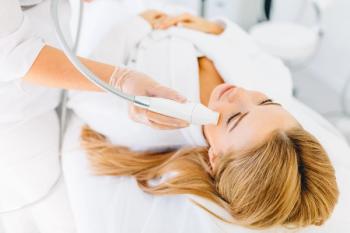
Pulsed dye lasers are now being used for several different dermatologic conditions.
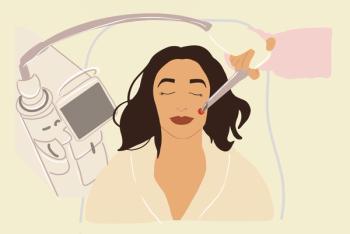
There are many innovative and exciting developments coming to the dermatology space, both energy-based devices and injectables.